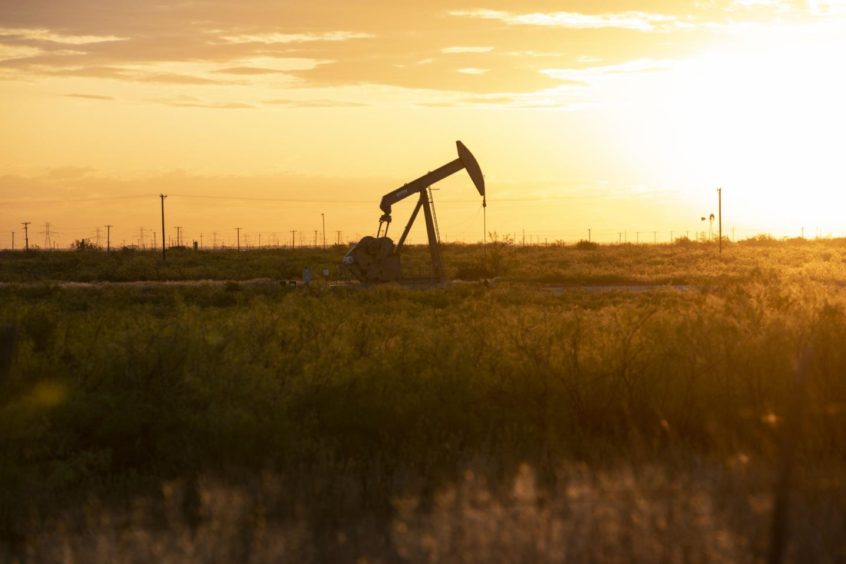
Oil and gas majors are being warned they must plan for a “major production drop” in order to hit the 1.5°C Paris Agreement target.
Financial think tank Carbon Tracker has said that, as it stands, the world’s largest listed hydrocarbon firms “cannot be considered aligned” with global climate targets.
In order to reverse that, they need to plan for huge production declines, with half facing cuts of 50% or more by the 2030s.
In a new report, released today, the organisation said companies are still approving “billions of dollars” of investment in major projects that are inconsistent with Paris.
Even those with net zero commitments are continuing to explore for new oil and gas, Carbon Tracker said.
Mike Coffin, Carbon Tracker head of oil, gas and mining and co-author of the report, said: “Oil and gas companies are betting against the success of global efforts to tackle climate change. If they continue with business-as-usual investment they risk wasting more than a trillion dollars on projects which will not be competitive in a low-carbon world.
“If the world is to avert climate catastrophe, demand for fossil fuels must fall sharply. Companies and investors must prepare for a world of lower long-term fossil fuel prices and a smaller oil and gas industry, and recognise now the risk of stranded assets that this creates.”
Adapt to Survive – Carbon Tracker’s fifth annual analysis of the risk of investing in oil and gas producers – warns investors that companies have not woken up to the “seismic implications” of recent studies.
A report published by the International Energy Agency found that no investment in new oil and gas production is needed if the world aims to limit global warming to 1.5°C.
Shale companies most at risk
According to Carbon Tracker, in order to hit climate targets, production at 20 of the world’s 40 largest listed companies needs to shrink by at least 50% by the 2030s, as existing projects run down with no replacements.
Most large shale oil companies would see production drop by over 80%.
US shale specialist ConocoPhillips is the major most exposed, facing a drop of 69%.
Next is Chevron (52%), followed by Eni (49%), Shell (44%), BP (33%), ExxxonMobil (33%), and TotalEnergies (30%).
Saudi Aramco is the only one of the world’s largest listed oil and gas companies that would see increased production because of its large spare capacity from existing fields, the report said.
Net zero by 2050
BP announced last year that it planned to cut oil and gas production by 40%, or about 1 million barrels per day (bpd), and reduced emissions from its operations by about a third by 2030.
Eni, TotalEnergies and Shell have also acknowledged that their production will fall over the coming years, while most majors have pledged to become net zero by 2050.
Axel Dalman, Carbon Tracker associate analyst and report co-author, said: “In general, no new projects and a rapid decline in production could deliver a serious shock to company valuations, as new project options are rendered effectively worthless and future cashflows are reduced.
“Lower equity valuations would in turn increase the cost of capital and insolvency risk. It is crucial for companies to have a strong transition plan, winding down oil and gas activities in an orderly manner and either diversifying into low-carbon businesses or returning capital to shareholders.”
Stranded assets
Concerns were also raised about companies invest in projects expecting a “business-as-usual future” of “stable or rising demand”, with the report predicting they risk being left with stranded assets.
Even amid the Covid pandemic, as oil prices collapsed and boards cut dividends, companies continued to make investments that “bet against” the 1.5°C target, Carbon Tracker said.
The report identifies five major projects approved in 2020 that are not even compatible with a 1.65°C target, with projected investments worth a total $18 billion over the next decade:
- ExxonMobil’s $5.5 billion Payara and $1.8 billion Pacora oil fields in Guyana;
- Petrobras’ $4 billion Itapu oil field in Brazil;
- Woodside’s $3.9 billion Sangomar oil field in Senegal;
- Petrobras, Shell and Total’s $2.7 billion Mero 3 oil field in Brazil.
Nevertheless, investors are putting increasing pressure on fossil fuel companies to align with the Paris target.
That is on top of growing scrutiny from the public about the part that oil and gas will play in the energy transition.
But despite their climate change commitments, the report found that Shell, TotalEnergies, Eni and Equinor have all picked up new exploration licences in frontier areas like Suriname and Norway’s Barents Sea.
Meanwhile, BP plans to develop new “advantaged” assets.
“Such moves call into question these companies’ commitment to transitioning away from oil and gas,” the report says.
‘Business-as-usual investment’ at risk
Analysing the impact of decarbonisation on assets, Carbon Tracker claimed that, even on a “slower pathway”, the majority of companies would see more than half their project portfolio at risk of being stranded.
More than a trillion dollars of “business-as-usual investment” is said to be at peril, including $490 billion in shale/tight oil projects and $200 billion in deepwater projects.
ConocoPhillips is the oil major that is most exposed, with 88% of its business-as-usual project portfolio likely to be uncompetitive, followed by ExxonMobil (80%); Chevron (60%); Shell (53%); BP (40%); TotalEnergies (39%); and Eni (25%).
Mr Dalman said: “Investors have a crucial role to play in driving the changes to the oil and gas industry’s behaviour necessary to reduce their exposure to transition risks. If they want to align with a 1.5°C climate target, it’s crucial that they only hold companies with robust plans to reduce production of oil and gas and approve no new projects. Investors seeking to align with other temperature outcomes must ensure that companies demonstrate how any projects they approve are compatible with a low-demand world, not just short-term prices.”
Recommended for you


 © Bloomberg
© Bloomberg